Black steel sheet example name
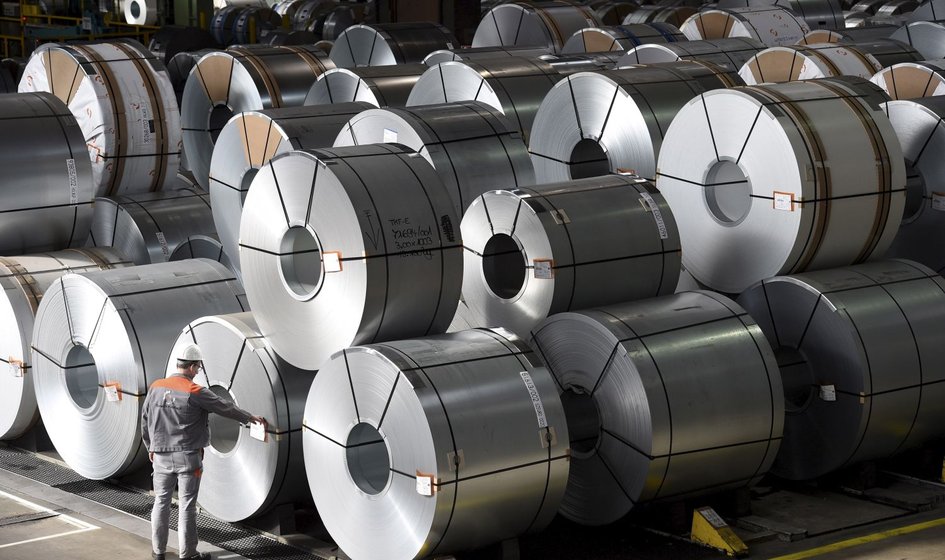
People first learned how to work with iron some 6,000 years ago. The ultra-common element wasn’t used in its most crucial function, the production of steel, until a few thousand years later. Steel is used in hand tools, large construction equipment, home appliances, and applications involving mechanics and electricity. Making that decision could be challenging because of the large selection available.
Steel is an iron alloy, which implies that iron is its main constituent. One or more alloying metals are then added to the iron to create new materials with properties that are different from those of iron alone. There are four main categories, but within each of those categories, there are several subcategories, each of which serves a particular purpose. When combined with other elements, iron acquires new properties, and these properties can change based on how the metal is heated and cooled.
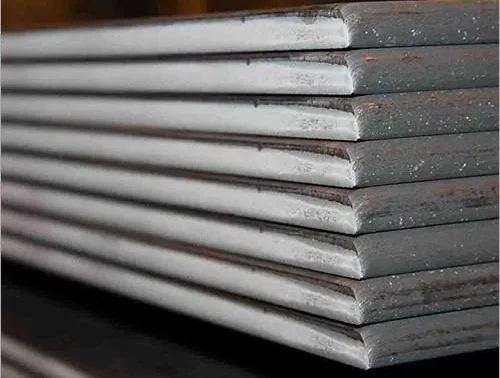
Black steel sheet example
Metal that has been industrially processed into thin, flat pieces is called sheet metal. The following list of sheet metal samples will be provided. One of the basic materials used in metalworking is sheet metal, which can be bent and cut into a wide range of shapes.
There are six main varieties of sheet metal, each with special benefits:
- Steel alloy
- Stainless steel
- Steel carbon
- Steel tool
- Galvanized steel
- Aluminum
Extremely thin sheets are referred to as foil or leaf, whereas sections thicker than 6 mm (0.25 in) are referred to as plate, such as plate steel, a type of structural steel. Thicknesses can vary greatly
There are flat pieces of sheet metal and coiled strips available. A roll slitter is used to cut a continuous sheet of metal into coils.
The majority of the world regularly specifies sheet metal thickness in millimeters. In the US, the gauge—a conventional, non-linear measure—is frequently used to specify sheet metal thickness. The metal is thinner the higher the gauge number. Steel sheet metal in common applications ranges in gauge from 30 to around 7. Compared to nonferrous metals like aluminum or copper, ferrous (metals based on iron) metals have different gauges. For instance, the weight of copper in a square foot of material is measured in ounces, or copper thickness. For best results, sheet metal parts must retain a consistent thickness.
Sheet metal can be produced from a wide variety of metals, including aluminum, brass, copper, steel, tin, nickel, and titanium. Silver, gold, and platinum are significant sheet metals for decorative applications (platinum sheet metal is also utilized as a catalyst).
Equipment for kitchens and restaurants, elevators, doors, boats, car bodies, irrigation and drainage systems, guardrails, brackets, mailboxes, siding, roofing, gutters, electronics enclosures, trim, tanks, drawers, ventilation systems, hoods, cutlery, pipes, cabinets, containment systems, and other items are frequently made from sheet metal.
The strong demand and expanding uses across various industries have caused the sheet metal production process to advance and improve over time. Sheet metal fabrication has developed into a type of art requiring the highest level of craftsmanship because of its many distinct techniques.
The manufacture of precision sheet metal is one of the most widely used manufacturing techniques today. The numerous technical developments we’ve witnessed in industries like aircraft, electronics, medical, transportation, consumer electronics, and more all depend on sheet metal production. In reality, sheet metal fabrication is used in practically every industry.
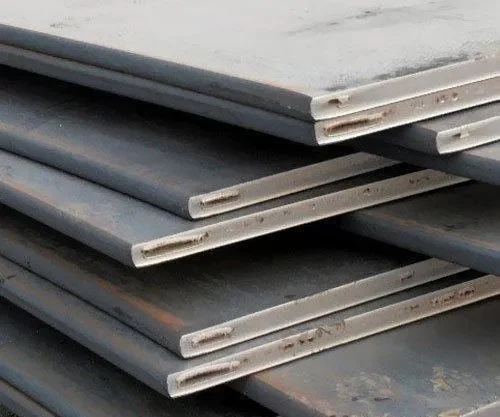
Black steel sheet name
Black steel sheets are a type of material with high carbon content, and they get their name from their somewhat bluish black hue.
The creation of items out of sheet metal is known as sheet metal fabrication. Numerous sectors all around the world depend largely on the manufacturing of sheet metal. For individuals involved in sheet metal fabrication, the creation of unique parts through sheet metal fabrication in developing nations like India and China has generated enormous opportunities.
The strong demand and expanding uses across various industries have caused the sheet metal production process to advance and improve over time. Sheet metal fabrication has developed into a type of art requiring the highest level of craftsmanship because of its many distinct techniques.
The manufacture of precision sheet metal is one of the most widely used manufacturing techniques today. The numerous technical developments we’ve witnessed in industries like aircraft, electronics, medical, transportation, consumer electronics, and more all depend on sheet metal production. In reality, sheet metal fabrication is used in practically every industry.
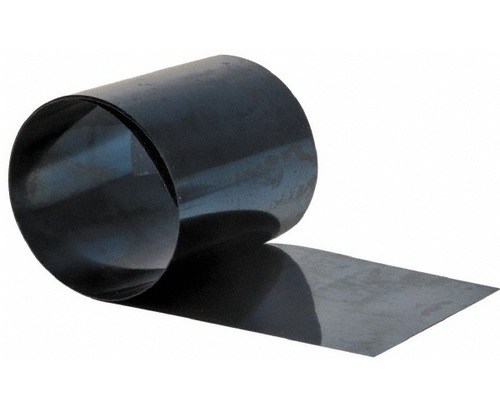
Methods and Supplies Used in the Fabrication of Sheet Metal
Cutting, forging, rolling, bending, assembling, engineering, welding, braking, powder coating, stamping, turret, and laser automation, riveting, punching, sub-contract manufacturing, prototyping, machine design, and technical drawing are all sheet metal fabrication processes and techniques. These sheet metal production procedures have a very low tolerance for error and demand high precision from expert workers. The fabrication of sheet metal is a crucial component of manufacturing, used in anything from massive structural projects and construction machinery to complex telephones and electronics.
The materials used to fabricate sheet metal range greatly. All of the attributes that are frequently sought in metals used in the manufacture of sheet metal include strength, conductivity, hardness, flexibility, and resistance to corrosion.
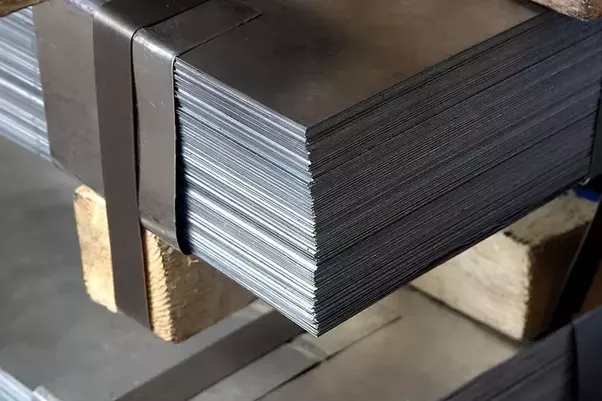
Black steel sheet quotes
The end result of the casting process is a black sheet. It gets its name from its hue, and because of the features, it has, its utilization area is very broad. It has some drawbacks in addition to its benefits over competing products.
What is Black Sheet?
The flat steels made from the subsequent rolling of casting-method products are referred to as “black sheet.” Models made of mild steel are produced by hot rolling. In other words, the steel is first heated above the temperature at which it crystallizes. Then, parallel rollers are used to roll the material.
At this point, the heated steel’s simpler shape provides a significant benefit. This benefit allows you the ability to produce items with the correct thickness and dimensions. At this point in the black sheet manufacture, it is crucial that there are no delays.
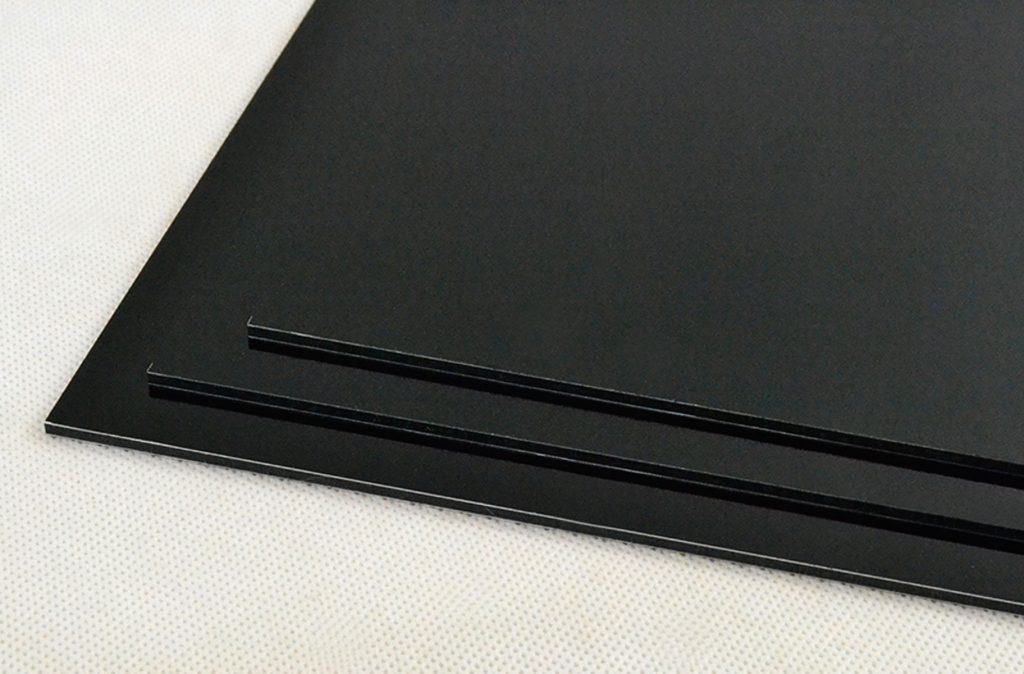
What characteristics do black sheets have?
Mild steel is produced in an innovative manner. As a result, it has various characteristics. The following is a list of the exceptional qualities of this unique product:
It can be used for specialized manufacturing. The desired proportions can be achieved thanks to hot rolling.
- It can be molded easily.
- The casting procedure results in its production.
- It possesses considerable strength.
- It can be welded.
- Because it is simple to weld and shape, its application range is very broad.
The general characteristics of mild steel are described here. The product’s thickness and form can affect how strong it is and how long it lasts. The tolerances for mild steel thickness range from 1.5 mm to 20 mm.

Black steel sheet uses
Sheet metal is metal that has undergone industrial processing to create thin, flat pieces. Sheet metal is one of the fundamental components used in metalworking, and it may be bent and cut into a variety of shapes.
Foil and leaf are terms for extremely thin sheets, whereas plate, which includes structural steel plate that is thicker than 6 mm (0.25 in), is used to describe sections that are thicker than that. There are many different thicknesses.
Both coiled strips and flat sheet metal are readily available. A continuous metal sheet is sliced into coils using a roll slitter.
Millimeters are frequently used to specify sheet metal thickness. In the US, gauge, a non-linear metric, is used to determine sheet metal thickness. Higher gauge translates to thinner metal. The majority of steel sheet is 30 to 7 gauge. Metals made of iron have different gauges than metals made of aluminum or copper. The calculation of copper per square foot uses either ounces or copper thickness. It is preferable to have uniform sheet metal thickness.

Black steel sheet by color
Because there is so much carbon in this type of carbon steel, black steel sheets have a bluish-black color.
It is possible to produce sheet metal pieces out of a variety of metals and metal alloys. The selection of materials is based on the demands of the application, and considerations for material selection include:
- Formability
- Weldability
- Corrosion Resistance
- Resistance
- Strength
- Weight
- Cost
Stainless steel is a common type of sheet metal.
In the manufacturing of sheet metal, two types of stainless steel are used: stand and spring-like.
Any of the 300 series sheets of steel are the most often used variety of standard stainless, and they can all be non-magnetic. It doesn’t need hot work or any other type of stress release during production. The stainless steel type with the highest resistance to corrosion, Grade 316, also retains its strength at high temperatures. The most popular grade, Grade 304, has good formability and weldability while having a somewhat lower level of corrosion resistance.

black steel sheet cut to size
Any one of a wide range of metals is used to make sheet metal. Using a method that yields uniform pieces with predetermined thicknesses, your material of choice is shaped into thin sheets. Even though steel, particularly stainless or galvanized steel, is perhaps the most common type of sheet metal used in industrial applications, other metals, such as:
- Brass
- Copper
- Aluminum
- Tin
- Titanium
- Nickel
- Platinum
- Gold
- Silver
Remember that the characteristics of certain metals can have a direct impact on your project. In other words, when it comes to qualities like strength and durability, not all metals are created equal. Select wisely.
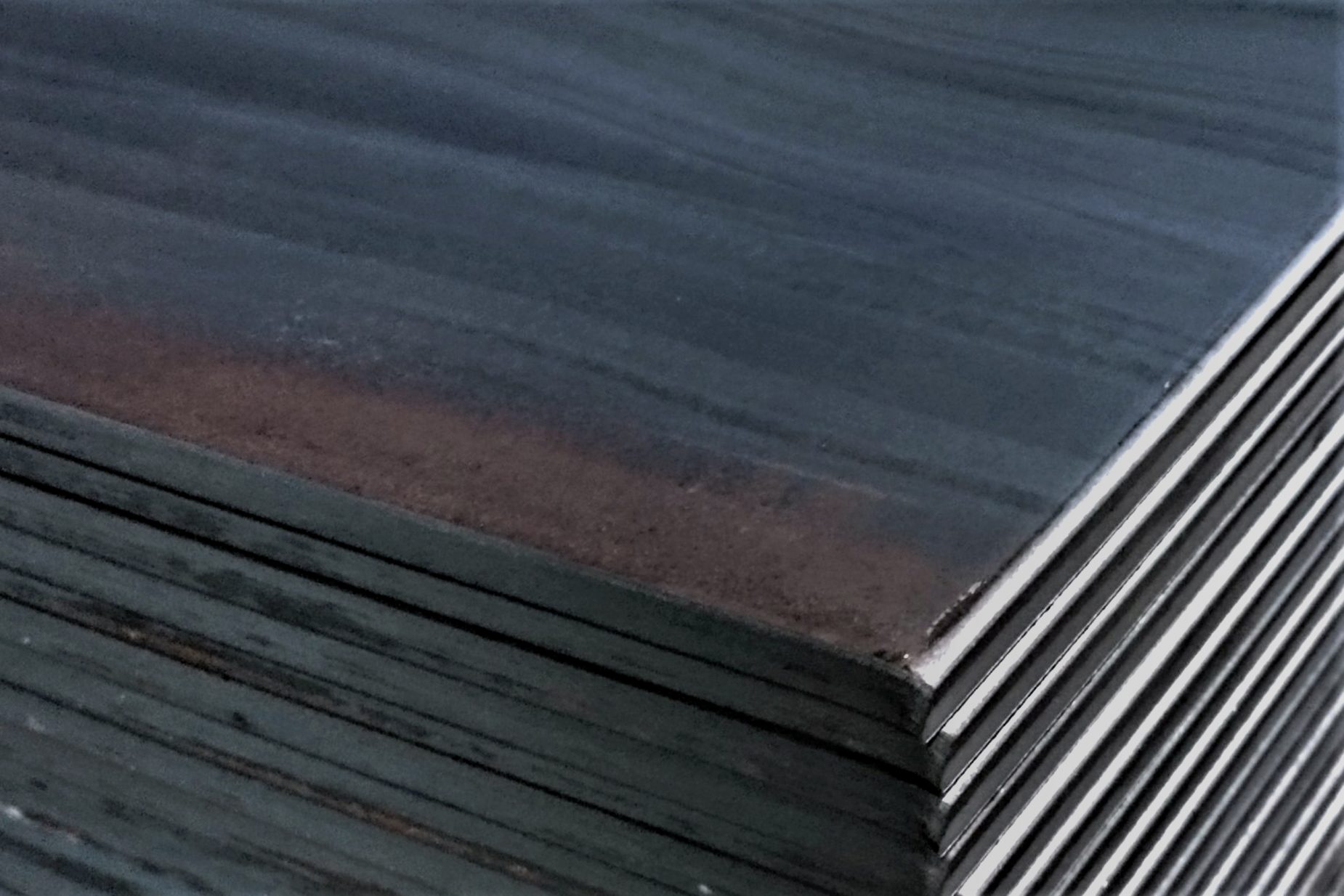
Four things to think about when choosing sheet metal sizes
When it comes to sheet metal scaling, there are various things to keep in mind. These consist of:
- Gauge
- Thickness
- Weight
- Size specifications
- GAUGE
The United States measures sheet metal thickness in gauges, but the majority of the rest of the world does it in millimeters. The sheet is thinner the higher the gauge number. In contrast, the thickness of the sheet increases with a smaller gauge number.
- THICKNESS
The thickness of sheet metal should be taken into account due to both the material’s cost and the labor-intensiveness of cutting the sheet. Not to mention the thickness of the material required for any bends.
- WEIGHT
Each sheet of a particular gauge has a particular weight. Pounds per square foot is the unit of weight measurement in the United States. The unit of weight in Europe and many other regions of the world is kilograms per square meter.
- SIZE SPECIFICATIONS
Standard sheet metal sizes come in a range, including:
36” x 96”
36” x 120”
36” x 144”
48” x 96”
48” x 120”
48” x 144”
Two well-known examples of adaptable metals are iron and carbon, which are the basic building blocks of a large amount of what we see in modern cities, including the infrastructure for telecommunications and transportation networks. Metals that have been around for a long time include iron and carbon. Despite the development of new ways to combine materials, steel has been used for a very long time, and it is not anticipated that this will change for a very long time. Metals like steel have been used for a very long period.
We are the global supplier and provider of this priceless metal, as well as its derivatives and the finished and semi-finished goods made from them. Items made from it that have been completed are also included in this category.
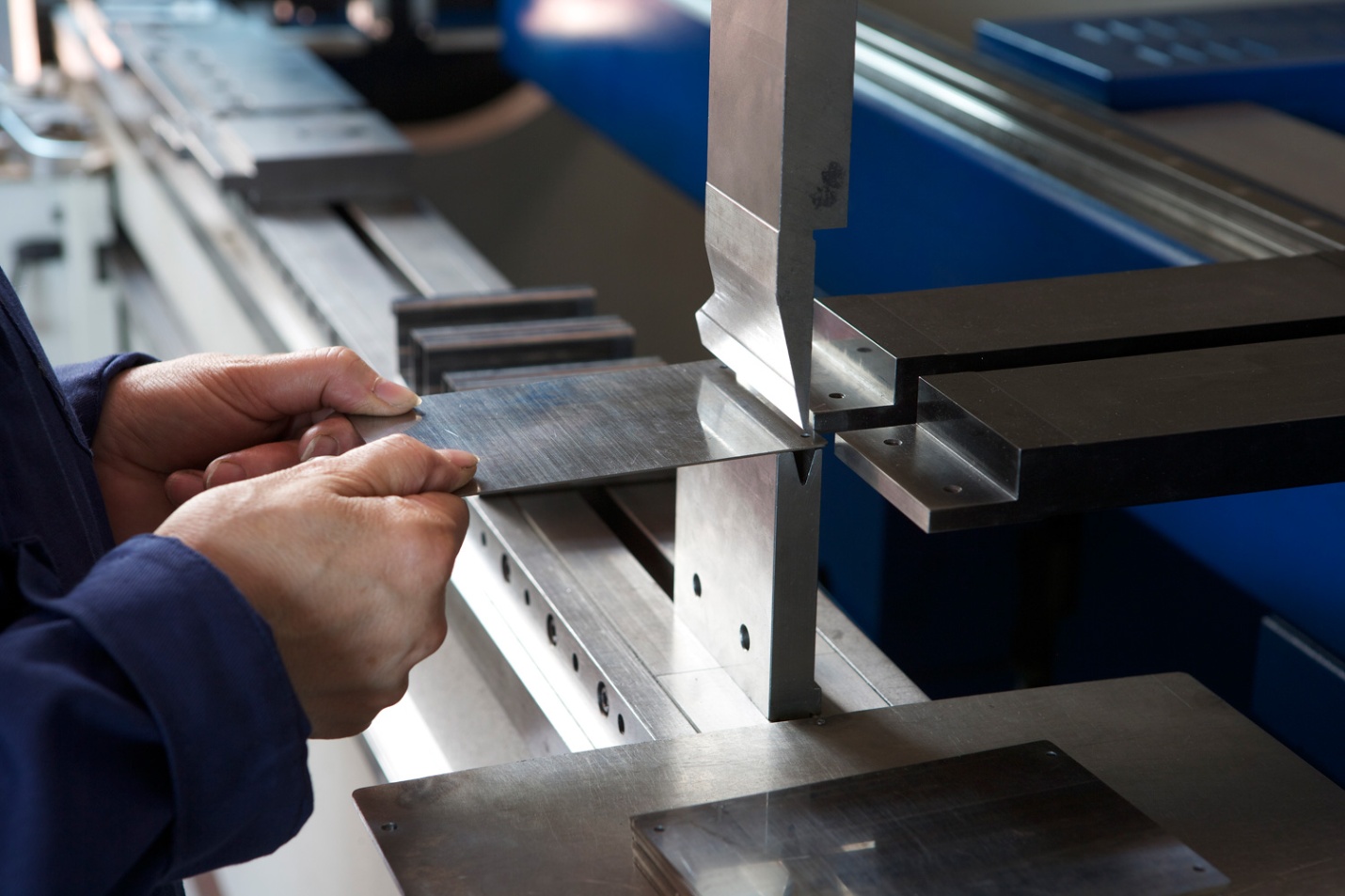
Our extensive professional expertise throughout the years has helped us become the supplier and provider that we are today. Filling out the inquiry form we’ve provided is all you need to do in order to make a purchase or request assistance.
People first learned how to work with iron some 6,000 years ago. The ultra-common element wasn’t used in its most crucial function, the production of steel, until a few thousand years later. Steel is used in hand tools, large construction equipment, home appliances, and applications involving mechanics and electricity. Making that decision could be challenging because of the large selection available.
Steel is an iron alloy, which implies that iron is its main constituent. One or more alloying metals are then added to the iron to create new materials with properties that are different from those of iron alone. There are four main categories, but within each of those categories, there are several subcategories, each of which serves a particular purpose. When combined with other elements, iron acquires new properties, and these properties can change based on how the metal is heated and cooled.
Black steel sheet example
Metal that has been industrially processed into thin, flat pieces is called sheet metal. The following list of sheet metal samples will be provided. One of the basic materials used in metalworking is sheet metal, which can be bent and cut into a wide range of shapes.
There are six main varieties of sheet metal, each with special benefits:
Steel alloy
Stainless steel
Steel carbon
Steel tool
Galvanized steel
Aluminum
Extremely thin sheets are referred to as foil or leaf, whereas sections thicker than 6 mm (0.25 in) are referred to as plate, such as plate steel, a type of structural steel. Thicknesses can vary greatly
There are flat pieces of sheet metal and coiled strips available. A roll slitter is used to cut a continuous sheet of metal into coils.
The majority of the world regularly specifies sheet metal thickness in millimeters. In the US, the gauge—a conventional, non-linear measure—is frequently used to specify sheet metal thickness. The metal is thinner the higher the gauge number. Steel sheet metal in common applications ranges in gauge from 30 to around 7. Compared to nonferrous metals like aluminum or copper, ferrous (metals based on iron) metals have different gauges. For instance, the weight of copper in a square foot of material is measured in ounces, or copper thickness. For best results, sheet metal parts must retain a consistent thickness.
Sheet metal can be produced from a wide variety of metals, including aluminum, brass, copper, steel, tin, nickel, and titanium. Silver, gold, and platinum are significant sheet metals for decorative applications (platinum sheet metal is also utilized as a catalyst).
Equipment for kitchens and restaurants, elevators, doors, boats, car bodies, irrigation and drainage systems, guardrails, brackets, mailboxes, siding, roofing, gutters, electronics enclosures, trim, tanks, drawers, ventilation systems, hoods, cutlery, pipes, cabinets, containment systems, and other items are frequently made from sheet metal.
The strong demand and expanding uses across various industries have caused the sheet metal production process to advance and improve over time. Sheet metal fabrication has developed into a type of art requiring the highest level of craftsmanship because of its many distinct techniques.
The manufacture of precision sheet metal is one of the most widely used manufacturing techniques today. The numerous technical developments we’ve witnessed in industries like aircraft, electronics, medical, transportation, consumer electronics, and more all depend on sheet metal production. In reality, sheet metal fabrication is used in practically every indus.
The end result of the casting process is a black sheet. It gets its name from its hue, and because of the features, it has, its utilization area is very broad. It has some drawbacks in addition to its benefits over competing products.
You can contact us to buy and sell this product:
Sales consultant: Ms. Leila Nematzadeh
Ways of communication: Phone number: 02147623014
Phone number: 02147623014
 Phone number: 04133660491
Phone number: 04133660491
 Phone number: 09120169267
Phone number: 09120169267
 WhatsApp Response (Skype): click
WhatsApp Response (Skype): click
 Instagram: simurgh_steel_company@
Instagram: simurgh_steel_company@
 email: info@simurghsteelco.com
email: info@simurghsteelco.com
 email: ironore110@gmail.com
email: ironore110@gmail.com
 Facebook: ironore110@
Facebook: ironore110@
 LinkedIn: simurgh-iron-and-steel-company-a68295180@
LinkedIn: simurgh-iron-and-steel-company-a68295180@
 twitter: CoSimurgh@
twitter: CoSimurgh@

 Call number:
Call number:  Whats app:
Whats app:  Address: Salimi industrial Park, Tabriz, IRI
Address: Salimi industrial Park, Tabriz, IRI Instagram:
Instagram:  email:
email:  Facebook:
Facebook: 









